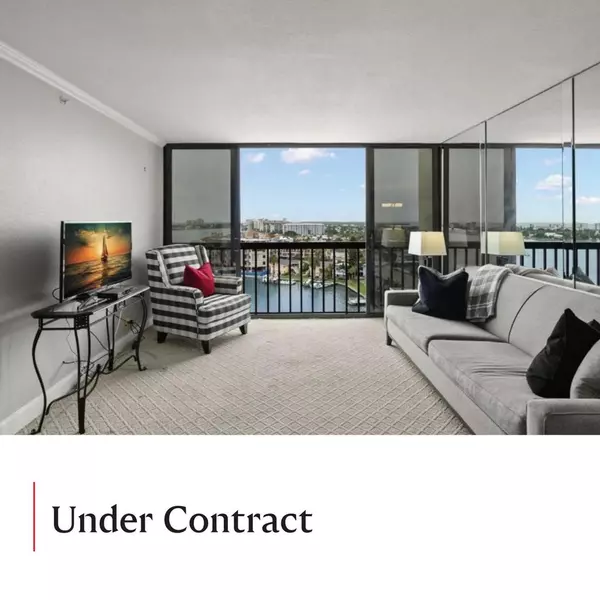MOST RECENT BLOGS
Unveiling the Success Story: 255 Dolphin Way!

At the heart of real estate lies the captivating tale of properties that quickly capture the imagination and hearts of eager buyers. This narrative often intertwines with exceptional marketing efforts, sparking a swift and exciting journey toward a successful sale. At the Leisa Erickson Group, we
Read MoreUnderstanding Seller Concessions: What Are They and How Do They Work?

Whether you're a buyer looking for your first home or a seller preparing to put your property on the market, you’ve probably heard the term “concessions” in real estate. But what exactly does that refer to? Seller concessions, which are also called seller assist o
Read More5 Tips To Help Sell Your Home in The Fall

Sure, the spring season is the peak time to put a house on the market. But with the cooler weather, vibrant-colored trees and falling leaves, picking apples, carving pumpkins, and enjoying turkey dinners, there's plenty to look forward to when fall comes. One of them could be a successful home s
Read More5 Meaningful Ways To Say Goodbye To A Home You Loved

The process of moving into a new house, even when you've done it a couple of times already, will always be stressful and difficult. It’s much more than relocating to a new place, especially when you have to leave a home you’ve lived in for years. It’s where you’ve made thousands of memories with
Read MoreLast-Minute Home Showing Checklist for Sellers

When you put up your home for sale, keep in mind that last-minute notices to show it to prospective buyers are always a possibility. But we trust that you've done all the huge and critical tasks even before listing, including deep cleaning, depersonalizing, and making little but necessary repair
Read MoreYou've Sold Your Home, Now What? Important Steps You Should Take Post-Sale

Completing the sale of a home is a significant accomplishment for any homeowner. After what could be months of preparing, staging, home showings, and negotiating, it can feel like a significant weight is finally off your shoulders. It's finally time to move on and celebrate, right?
Read MoreWhat Is A Listing Agreement? A Basic Guide For Home Sellers

Selling a home can be a daunting task, especially for those who are unfamiliar with the intricacies of a real estate transaction. Even if you're more than prepared to get your property on the market with a trusted real estate agent, you probably just can’t get down to business without doing this
Read MoreSellers: Here's Everything You Need to Know About Home Staging

If you're looking to sell your home, an extra step you can take to make a good first impression and get more potential buyers to fall in love with your property is through home staging. Here's our guide if you want to explore what home staging is and how it works, whether it’s
Read MoreWhat is the Multiple Listing Service? A Basic Guide For Buyers and Sellers

Whether you're embarking on your first house-hunting journey or it’s time to sell your beloved home, one thing is certain: you’re likely to encounter the term MLS, which stands for Multiple Listing Service. But exactly is it? Even though the real estate industry is highly compet
Read MorePlanning To Sell Your Home This Year? Here's Why You Should Work With A Real Estate Agent

If you're thinking of selling your home this year, one of the many things you might be considering is whether or not you should hire a real estate agent. You think you know a few potential buyers, so you’re being tempted to try to sell your home yourself and just pocket the cash you would otherwis
Read More5 Things To Skip Renovating Before Listing Your Home For Sale — Because A Buyer Might, Anyway

When you decide to put your home on the market, you want to put your best foot forward in preparing it to look its best for prospective buyers. Besides, the better your home shows, the more offers you'll likely get, right? Next, you make a to-do list of what things to fix and update around your
Read More3 Things To Remember Before Making Any Updates When Selling Your Home

If you're planning to sell your home, just thinking about the preparations you need for your property can easily become overwhelming. Because of this, many sellers tend to overspend on repairs and updates that won’t help sell their homes for more. They feel like they have to fix everything and o
Read MoreWhat To Know About Cash Offers When Selling Your Home

If you're considering selling your home, you might have encountered the term “all-cash offer.” Or maybe as you’re driving around town or scrolling online, you’ve seen advertisements from businesses that say they “buy homes for cash.” What does it mean? Here we will detail the ba
Read MoreSelling A Smoker's House? Here Are Expert Ways to Remove Cigarette Smell for Better Resale

Aside from a home's features and visual aspects, the odor is another critical consideration for many potential buyers. If you are a homeowner who frequently smokes cigarettes indoors or lives with a smoker, it is important to understand that tobacco odor lingers. Before decidin
Read More7 Listing Photo Mistakes To Avoid When Selling Your Home

A photograph can be worth more than a thousand words. This is especially true in real estate. You might have the most desirable house in the neighborhood, but if you do not take and post the right pictures, your home will not appeal to as many buyers. In the 2021 National Association of REALTOR
Read MoreWhy You Should Start Your Home Selling Journey By Decluttering

If you're planning to put your house on the market anytime soon, the biggest task isn’t to address repairs or start renovations, as these require lengthy planning since they can be time-consuming and costly. The main task you should prioritize as a potential home seller is decluttering. It’s ac
Read MoreHome Sellers: How Long Do You Have to Respond to an Offer?

n theory, there's no rule about how quickly a seller has to respond to purchase offers. You can take as long as you want before responding since there is no official time frame. However, the industry standard is to get back to interested buyers within 24 to 72 hours. This is a common courtesy ob
Read MoreWhat's Ahead in Real Estate? 5 Trends and Features To Watch Out For in 2022

The coronavirus pandemic turned the real estate market into a frenzied rollercoaster ride for both buyers and sellers. Especially because of the historically low mortgage rates coupled with the inventory shortage. But with the pandemic subsiding, the burning question is, what will happen in rea
Read More5 Risky Moves Homeowners Usually Make When Selling Their House

Selling a home is a serious venture for any homeowner. The process could be both time-consuming and emotionally challenging, more so if you've never done it before. You’d get anxious just thinking about all the steps it takes to list and sell your home. Or be overwhelmed by the fact that you hav
Read MoreDo You Believe These Real Estate Superstitions?

The home buying and selling journey is a massive undertaking for anyone. It takes plenty of time, expertise, negotiation, patience, and sometimes, even a little bit of luck. And as far as luck goes, many follow these superstitions still, even when it comes to real estate. And since it's the seas
Read More
Categories
Recent Posts











